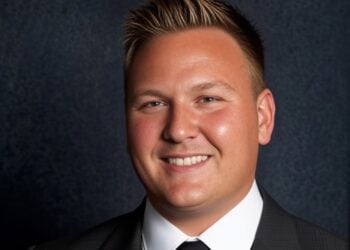TowneBank has established a niche in banking law firms that has grown to over 100 clients in the Triangle. Its three-person team is headed by Sara Boshart, TowneBank’s senior VP/private banker, who has over 35 years of experience working with lawyers.
Based out of Portsmouth, Virginia, TowneBank has two locations in the Triangle, with additional offices in North Raleigh and Cary under construction. The bank has 49 locations in North Carolina and Virginia, with total assets of $16.73 billion. I spoke with Boshart about the specific banking needs of lawyers and law firms.
SB: Lawyers, like many of us, prefer to know what faces them and avoid surprises. Before joining the bank, I spent 30 years in the title insurance industry and have worked with attorneys my entire career. These relationships I have developed over time allow me to uniquely understand attorneys – how they think and what is important to them – and how to make their lives easier from a banking perspective.
Banking is fluid in the Triangle, with all the growth in the region. International and out-of-state banks are opening branches here, and local banks are acquiring out-of-state financial institutions. As a result, the banker an attorney works with at their bank may not be there tomorrow, and their replacements may know nothing about banking law firms. Most importantly, they may not understand the complexities of handling IOLTA accounts.
My core experience working with all types of law firms allows me to educate and advocate internally within the bank for our legal partners, resulting in enhancements to our program. As the lead financial professional managing banking relationships for law firms, my voice is well-respected among our leadership to help everyone understand the needs of lawyers and law firms.
BF: Lawyers went to law school to become lawyers, not bankers. What do you do so they don’t constantly have to fret about their bank account?
SB: Number one for me, aside from the knowledge about the legal industry, is the personal attention and experience we provide. My team and I are present and proactive. Our clients have my cell number and can contact me as needed. I would also add that we are empowered to make decisions locally.
With many of our attorney members, we have daily conversations and interaction. That’s what we do that’s special. I’m most proud of the fact that the three of us are very attentive and responsive to our members.
I prefer having a consultative type of relationship with my members. I think it is very important, and it can also extend to the individual partners in the firm if they want to bring their personal banking relationships here. It’s a very hands-on, white glove type of treatment. We offer a full array of services, including insurance, benefits,* wealth management,** and merchant services. I am someone who thrives in crisis, so if a member has something significant come up, we are on it. As we all know, issues will arise, and it is how we respond that is most important.
BF: Lawyers have become popular targets for cyber-criminals to commit fraud and other financial crimes. Large sums are wired during real estate transactions; there may be a lot of money sitting in a trust account, etc.
SB: To begin with, we offer several treasury services to protect law firm funds, especially for trust accounts, such as ACH blocks and multiple Positive Pay products. I typically recommend using a stand-alone computer that is not networked with any other computers to access your bank accounts and send wires, as well as setting appropriate wire and ACH limits to limit exposure.
Over the years, my team and I have recognized and thwarted a number of fraud attempts. Due to our experience with fraud situations, we can recognize red flags and alert the law firm and our fraud team.
For instance, I had a solo business attorney email me stating he wanted to add a new signer to his account. This request seemed outside of his normal course of business, so I reviewed the signature line on the e-mail, and one digit of his phone number had been changed. I called his correct number and confirmed he had not sent the email, so we immediately locked down his accounts. The fraudster was attempting to get online access to his accounts and a wire token to wire out funds.
Another example was where one of my team members was working with a firm that did not routinely send wires. They provided us instructions, but the initial wire was returned. Their client then provided them with new wire instructions. That was suspicious to us, so we halted the wiring of funds. It turned out that their client’s email had been hacked, and the wiring instructions were fraudulent.
BF: What is the most common question lawyers ask you when considering moving their accounts to your bank?
SB: Probably the one I get the most is about how to make the transition. It is a significant step to move your banking relationship, but I assure them we have done it many, many times. When we bring on a new firm, we can transition their accounts over gradually if needed. We really let them drive the timeline; I just give them suggestions.
They will also typically ask questions about our treasury services and our Legal Partner Program. Generally, I’ll request a current statement so that I can work with our treasury team to prepare an analysis. That way, we fully understand how they are transacting on a day-to-day basis and what their needs are. We can often improve on what they have with their current bank in terms of products and cost. I talk through the treasury products and services that are efficient, secure and provide optimal cash management, including wires, account transfers, ACH payments, merchant services and fraud control. It’s very customizable because everyone has different needs.
BF: It’s not terribly uncommon for a glitch at the closing of a transaction, such as a commercial real estate deal, and a client needs to call their bank for help. What do you do so that a client doesn’t get a run around trying to find someone to address the problem?
SB: Because I handled commercial disbursements in the title industry, I understand the need to balance the time pressure to close along with protecting against fraud. If help is needed, my team and I are a phone call or text away. Also, due to our size, TowneBank remains a member-centered organization where we have direct access to the appropriate person or department to address the situation. The member does not have to call a general phone line or be put on hold and bounced around.
BF: What kinds of community support is the bank involved in?
SB: Many of our programs are aimed at food insecurity and children. Twice a year, we gather bank volunteers in our training room for projects that have benefitted programs such as Note in the Pocket, Communities in Schools, Rise Against Hunger, and SAFEchild. We do a “Day of Giving” each year. This year we had a group that worked on a Habitat for Humanity house. We also do a toy drive at Christmas for Toys for Tots or Me Fine.
Our total charitable giving since our founding in 1999 is $102 million. In 2022, donations and contributions bank-wide were $12.7 million. It’s what our founder, Bob Aston, wanted to do when he founded the bank. It’s our core principle to enrich other people’s lives.








